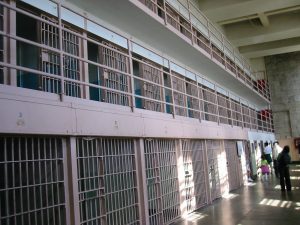 In Commonwealth v. Cole C., the SJC weighed in jurisdictional issues relating to the Juvenile Court. Specifically, in its decision, the SJC reversed the Juvenile Court judge’s dismissal of youthful offender indictments against the defendant.
In Commonwealth v. Cole C., the SJC weighed in jurisdictional issues relating to the Juvenile Court. Specifically, in its decision, the SJC reversed the Juvenile Court judge’s dismissal of youthful offender indictments against the defendant.
The background was as follows. “On April 20, 2016, Boston police arrested the defendant on a variety of charges related to an armed home invasion that occurred that day. He was seventeen years old at that time. After his arrest, the police took him to a Department of Youth Services (DYS) facility” and a multicount delinquency complaint was issued. “The defendant was arraigned on April 25, 2016, and two days after that (one week after the alleged incident), he turned eighteen. On July 5, 2016, a grand jury indicted the defendant as a youthful offender on five charges, [including] armed home invasion.” On the date set for arraignment, however, the Juvenile Court judge “refused to arraign the defendant on the youthful offender indictments on the grounds that — because the defendant had turned eighteen prior to the issuance of the indictments — the court lacked jurisdiction over them.” The defendant then moved to dismiss the indictments, the judge allowed the motion, and the Commonwealth appealed. In its decision reinstating the youthful offender indictments, the Appeals Court noted that “in 2013, the Legislature expanded the Juvenile Court[’s] jurisdiction by increasing by one year the age at which juveniles could be prosecuted there.” The relevant statute, G.L. c.119, §72(a), second par., “now provides the Commonwealth a pathway for securing youthful offender indictments against individuals between their eighteenth and nineteenth birthdays (for offenses allegedly committed prior to their turning eighteen).” Specifically, the statute provides that “[i]f a child commits an offense prior to his eighteenth birthday, and is not apprehended until between such child’s eighteenth and nineteenth birthday, the court shall deal with such child in the same manner as if he has not attained his eighteenth birthday, and all provisions and rights applicable to a child under 18 shall apply to such child.” The Appeals Court rejected the defendant’s argument “that even if the Commonwealth generally can indict eighteen year olds as youthful offenders, it cannot do so” here because the defendant was taken into DYS custody [i.e., “apprehended”] while he was still seventeen, such that §72(a), second par., is inapplicable. In response to this argument, the Appeals Court stated, “In [Commonwealth v.] Mogelinski[, 466 Mass. 627 (2013),] the [SJC] expressly rejected the argument that the date of apprehension on the youthful offender proceeding should ‘relate back’ to the date of apprehension on the prior delinquency proceeding. Id. at 646. Instead, the [SJC] concluded that ‘the commencement of process after an indictment marks a new point of apprehension, distinct from any apprehension on delinquency complaints.’ Id. at 643.”
The differences between facing charges in Juvenile Court versus District or Superior Court are substantial and prosecution in adult court as a youthful offender may have extremely harmful and irreversible effects on a juvenile’s future. If you or a loved one is a juvenile involved in the criminal justice system, it is extremely important that you are represented by a lawyer who understands and appreciates these differences. Attorney Daniel Cappetta has represented many juvenile defendants and does everything in his power to make sure that they are protected to the fullest extent possible under the law. Put his expertise to work for you or your child.
 Massachusetts Criminal Lawyer Blog
Massachusetts Criminal Lawyer Blog

